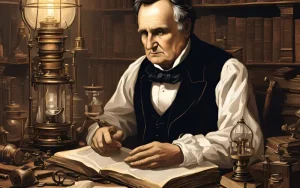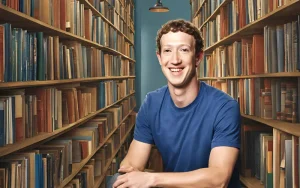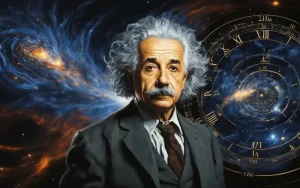Bill Gates is one of the most influential figures in the world of technology. As the co-founder of Microsoft, he played a key role in revolutionizing personal computing. Over the years, Bill Gates has become a household name, not only for his work in tech but also for his philanthropy. His story is one of innovation, success, and a drive to make the world a better place.
Early Life and Education
Bill Gates was born on October 28, 1955, in Seattle, Washington. His full name is William Henry Gates III. He grew up in an upper-middle-class family and was the second of three children. From a young age, Gates showed a keen interest in computers and technology.
He attended Lakeside School, a prestigious private school in Seattle. It was there that he was first introduced to computers. Gates quickly became fascinated with programming, and by the age of 13, he had written his first computer program.
After high school, Gates enrolled at Harvard University. However, he left Harvard in 1975 to pursue a dream that would change his life forever: starting his own software company.
The Founding of Microsoft
In 1975, Bill Gates and his childhood friend Paul Allen founded Microsoft. Their goal was to develop software for personal computers. The company started small, but it didn’t take long for Microsoft to make a name for itself.
In 1980, Microsoft signed a deal with IBM to provide the operating system for their personal computers. This was a turning point for both Gates and Microsoft. The operating system they provided, known as MS-DOS, became the foundation of Microsoft’s success.
Growth of Microsoft
Under Gates’ leadership, Microsoft grew rapidly. In 1985, the company released the first version of Microsoft Windows, which became a major success. Over the next few decades, Microsoft dominated the software industry, becoming one of the largest and most profitable companies in the world.
By the 1990s, Bill Gates was known as one of the richest people in the world, thanks to Microsoft’s success. His vision and leadership were key to shaping the personal computing landscape as we know it today.
Bill Gates’ Role at Microsoft
Throughout the 1980s and 1990s, Bill Gates played a hands-on role in the development of Microsoft’s products. As the company’s CEO, he oversaw the creation of many groundbreaking technologies. He was known for his competitive nature and his ability to foresee industry trends.
In 2000, Gates stepped down as CEO of Microsoft but remained actively involved in the company as its chairman and chief software architect. In 2008, he left his day-to-day role at Microsoft to focus more on his philanthropic efforts.
Philanthropy and the Bill & Melinda Gates Foundation
In 2000, Bill Gates and his then-wife, Melinda, established the Bill & Melinda Gates Foundation. The foundation is one of the largest private charitable organizations in the world. It focuses on improving healthcare, reducing poverty, and expanding educational opportunities.
Over the years, Bill Gates has donated billions of dollars to causes such as eradicating diseases, improving education, and addressing global challenges like climate change. His philanthropic work has earned him widespread recognition and respect.
Focus on Global Health
One of the key areas of focus for the Bill & Melinda Gates Foundation is global health. The foundation has worked to combat diseases such as malaria, HIV/AIDS, and polio. Gates’ commitment to improving global health has saved millions of lives around the world.
Personal Life and Interests
Bill Gates married Melinda French in 1994. The couple has three children: Jennifer, Rory, and Phoebe. In 2021, Gates and Melinda announced their divorce but have continued to work together on their foundation.
Outside of his work, Gates is an avid reader and enjoys learning about a wide range of topics, including history, science, and technology. He is also passionate about addressing climate change and has written extensively on the subject.
Legacy and Impact
Bill Gates’ impact on the world is undeniable. As the co-founder of Microsoft, he helped shape the modern technology landscape. His contributions to personal computing have transformed the way people live and work.
Beyond his work in tech, Gates’ philanthropic efforts have had a profound impact on global health, education, and poverty reduction. His dedication to improving the lives of others continues to inspire people around the world.
Conclusion
Bill Gates’ biography is a testament to the power of innovation, hard work, and a desire to make a difference. From founding Microsoft to leading one of the world’s largest charitable foundations, Gates has left a lasting mark on both the tech world and global philanthropy. His story serves as an inspiration to future generations of innovators and changemakers.



